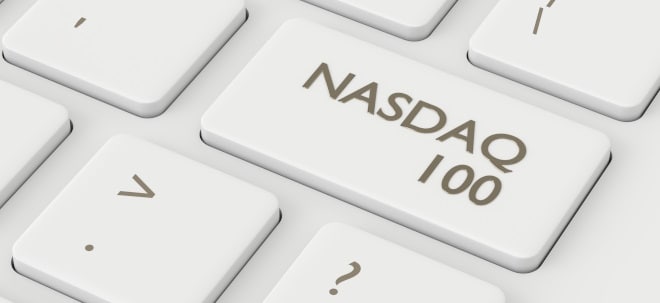Sehr interessand, was sich in Australien so auftut.
Taylor On The Markets & Gold
Jay Taylor
Financial Markets
Wistar Holt Disputes the Bulls
My good friend Wistar Holt forwarded a copy to me of a letter he wrote to the editor of the " St. Louis Post Dispatch" and granted me permission to publish it. I have chosen to do so because it summarizes the big problems we are now facing, even as Wall Street does its best to keep you sucked into the equities markets, giving the big money still more time to exit.
" To the Editor:
Smoke and Mirrors
" On Wednesday June 30, Alan Greenspan and the Federal Reserve raised the fed funds rate a mere ¼% to 1 ¼%. In your lead article on July 1, 2004, titled " Fed's Rate Hike Signals Rebound in Economy" Alan Skrainka, chief market strategist at Edward Jones, proclaimed, " This is confirmation that the economy is rock solid..It's unbelievable how good things are right now." Ironically, this is an eerie reminder of the widespread euphoria expressed by sell side brokerage firms in early 2000, just before the NASDAQ began a gut wrenching 86% decline.
" An economy is not " rock solid" if it faces the following problems:
A $500+ billion annual budget deficit
A $500+ billion annual current account deficit
A 25% decline in the U.S. dollar
Record debt levels in all segments of the economy including federal, state, local governments, corporations, and individuals
Extremely low savings rate among individuals
High levels of bankruptcies and foreclosures among individuals
" No, that scenario describes an economy that has been injected with the highest level of fiscal and monetary " steroids" in history in an effort to avoid the normal, painful contraction and unwinding necessary after an economy loses $7 trillion from the bursting of an equity bubble. If everything is so great, why did Greenspan only raise rates to 1 ¼% which is well below the rising inflation level, and light years below the 4% proclaimed neutral level? Why does Skrainka go on to say " Greenspan did not want to surprise the markets?" Once again, if everything is great, what is Greenspan worried about? Well, the answer is crystal clear. Greenspan is caught in a dilemma between raising rates enough to thwart inflationary pressures (building materials, food, energy, and healthcare) and raising them too much and popping the existing bubbles in stocks, bonds, real estate, and credit. There is no easy way out. Something will have to give and it will not be pretty."
Wistar W. Holt
Holt & Shapard Capital Management LLC
Chase Park Plaza
212 North Kingshighway Blvd. Suite 1027
St. Louis, Mo. 63108
314-367-6300
www.holtshapard.com
Big Smart Money is Running from Stocks. Shouldn't You, Too?
The " Wall Street Journal" reports the top 10 insider buys and top 10 insider security sales every day. Wistar Holt has kept an eye on these key statistics and mentioned them from time to time, so I decided that I would start tracking and posting these stats daily. The reason for these numbers is extremely simple. Insiders know what is going on in their company and in their industries far better than the talking heads on CNBC who are biased toward the bullish side of the equity markets.
What I am finding is consistent with what Wistar had mentioned frequently-that insiders are selling shares in their own companies far, far more aggressively than insiders are buying shares in their own company.
How lopsided has it been? How much have insiders been taking out of their companies compared to the amount they are putting in? Through the first 9 days that I have begun charting these stats, insiders sold $1.095 billion of the securities for the companies they had inside knowledge of. But they bought only $47.5 million worth of stock in the companies they have insider knowledge of. That works out to a ratio of $23.10 of stock sold by insiders for every share purchased. Moreover, as Wistar points out, much if not most of the insider buying is coming from executives who have very low-cost, below-the-market options, which loads the dice for them in a way that most unsuspecting investors do not enjoy. In other words, the conviction underlying even this relatively small amount of insider purchases is suspect.
With insiders-who understand their companies best-running as fast as they can from stocks, why should you consider buying the market?
Most noteworthy over the past few weeks have been sales of over $350 million of Dell by Michael Dell and a relatively small (for him) purchase of Municipal Bonds by Pimco's Bill Gross. Also of exceptional importance I think are reports that Bill Gross has purchased $35 billion of U.S. Treasury Notes and " other high-quality U.S. debt securities."
With the big money coming out of the market and with average folks now being suckered into the real estate markets, the demand for stocks is falling off even as insiders continue to sell. Still, the establishment must keep the little guy putting money into his 401-K so that the big guys still have time to get out before the roof caves in.
What we are seeing in the equity markets in general is more or less displayed in the chart of the Dow above. It shows that the bear market that begin at the start of 2000 remains very much intact after a powerful bear market rally that began early in 2003 and persisted through the early days of 2004. But now we are seeing a shorter-term topping pattern on the Dow (and most other markets too), which is typified by lower lows and lower highs. I believe we are nearing the time when the next leg drops on the equity markets, at which time we will begin to see the real capitulation in the equity markets that comes when it finally dawns on people that we are in a very, very serious bear market.
Richard Russell worries that Alan Greenspan may not be printing enough money to keep the U.S. from plunging over a deflationary cliff. I share Mr. Russell's concern except that I worry he will print too much money, which is at the heart of huge and growing American and international economic problems. Again, let me repeat, debt is the raw material from which money is " printed." And debt is growing faster and faster and faster while income is growing at best in a linear fashion. Again, we refer to the Total Debt/National Income chart below which best illustrates why we, as a nation, are like a rowboat nearing the edge of Niagara Falls.
[IMG]http://www.gold-eagle.com/golThe best market analyst in the world for my money is Richard Russell. You can subscribe to his letter at www.dowtheoryletters.com. Richard summarized his views on the equity markets in his July 2, 2004, daily publication, " Richard's Remarks," with the following statement: " My conclusion based on the action of the Dow is that this market is facing potential major trouble." Clearly, the likes of Michael Dell and Bill Gross agree, and so do we.
So therefore, all currencies around the world are weak currencies. The question becomes, " Which is the weakest of them all?" I believe one of the weakest of all is the U.S. dollar because the U.S. buck is valued not so much on the basis of the U.S. economy (which is now in a massive secular decline vis-à-vis other countries) as it is on its use as a medium of international exchange. That is why you will never hear in our mainstream media initiatives by Iran to commence trading oil, which would likely mean euros or gold would be used instead of dollars as a medium of exchange in the international oil trade. For sure, the efforts to keep demand high for the dollar as a medium of international exchange is why you never hear about the efforts of Malaysia to begin using a gold dinar as a medium of exchange among Islamic countries for trading oil.
On the radio program, I mentioned John Hathaway's view that gold will, during this bull market in gold, ultimately be priced in four digits-not three digits, as is currently the case. What currencies would benefit vis-à-vis the U.S. dollar as gold rises? Well, we see constantly that gold is negatively correlated with the dollar. Ultimately, I expect gold will rise against all paper currencies, but which will it rise against most? The U.S. dollar. Due to its use in international trade and capital flows, it has superpower-status and is the most overvalued. But we are now witnessing some backing away from the dollar as a reserve currency with nations like China, Russia, and Vietnam, to name a few, who are choosing to diversify into euros and gold. Thus, I believe gold will rise mostly against the U.S. dollar.
July 5, 2004
Das dürfte in Kürze was werden.
Aktuelles Orserbuch in AU
# Volume Bid Offer Volume #
1 2 258,340 0.022 0.024 105,000 3 1
2 1 994,492 0.021 0.025 165,000 2 2
3 2 290,000 0.02 0.026 392,831 1 3
4 2 550,000 0.019 0.027 412,000 3 4
5 1 2,000,000 0.018 0.028 758,500 4 5
6 1 100,000 0.017 0.029 1,478,511 3 6
7 2 685,000 0.016 0.03 2,100,000 2 7
8 5 1,500,463 0.015 0.031 208,000 1 8
9 1 600,000 0.006 0.032 233,000 3 9
10 1 500,000 0.001 0.034 580,000 2 10
MFG Reimund |


 Thread abonnieren
Thread abonnieren

